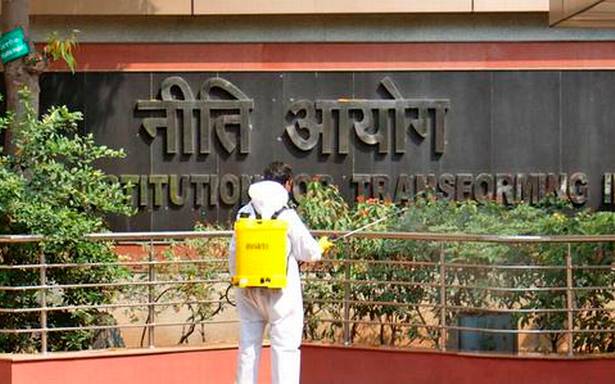Strengthen primary health care and make free and rational medication accessible to all, say activists
Health rights groups in Rajasthan on Tuesday expressed concern over the NITI Aayog giving low ranking in the health index round IV report with the findings that health status had stagnated and health services were deteriorating in most parts of the State. The ranking was given recently on the basis of 24 indicators related to health outcomes and on key inputs and processes.
The report “Healthy States, Progressive India”, prepared by the NITI Aayog, the World Bank and the Union Ministry of Health & Family Welfare, has placed Rajasthan at the 16th position among 19 big States. Moreover, the State has shown a decline between the base year 2018-19 and the reference year 2019-20.
Rajasthan has been depicted as the “worst performer” in health outcomes measured in the form of neonatal, under five and maternal mortality rates, tuberculosis treatment success rate, etc. It falters even on institutional deliveries and immunisation in comparison with other States.
Activists attached to the Jan Swasthya Abhiyan (JSA) here demanded that the State government get its act together and take decisive steps to improve the health status of people. The JSA highlighted the enactment of the Right to Health Care Act, strengthening of primary health care and making free and rational medication accessible to all as the urgent steps needed in Rajasthan.
Chhaya Pachauli, director of voluntary group Prayas, said the State government must ensure that all citizens get free basic preventive and curative services within half-an-hour of walking distance as part of the right to health care. The State must also invest generously in primary health care and maternal and child health services which should be delivered through an outreach in villages or through the institutions such as the Anganwadi Centres.
“The functioning of the primary health care services largely influences indicators such as immunisation, antenatal care, institutional deliveries and infant and maternal mortality rates, which were the key variables on which the NITI Aayog’s report was based,” Ms. Pachauli said. The State should also ensure that the services focused on reproductive and child health were not hampered in the emergency situations like a surge in the COVID-19 pandemic cases, she said.
Source: Read Full Article

